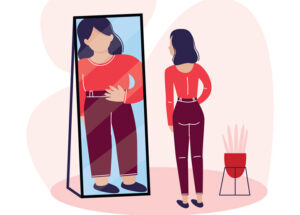If you are worried that someone you know may have an eating disorder, it is important to know how to identify the signs and symptoms. An eating disorder can be very harmful to a person’s physical and mental health, so it is crucial to get help as soon as possible. In this blog post, we will discuss the signs and symptoms of common eating disorders, as well as eating disorder assessment and how to get help for yourself or someone else.
Contents
- 1 What Are Eating Disorders?
- 2 Diagnosis of Eating Disorder
- 3 What Is Eating Disorder Assessment?
- 4 How Is Eating Disorder Assessment Done?
- 5 What Happens After Eating Disorder Assessment?
- 6 Questions In Eating Disorder Assessment
- 7 Tips For Taking Eating Disorder Assessment
- 8 Results of Eating Disorder Assessment
- 9 Effectiveness of Eating Disorder Assessment
- 10 Benefits of Eating Disorder Assessment
- 11 Limitations of Eating Disorder Assessment
- 12 Conclusion
What Are Eating Disorders?
 Eating disorders are a type of mental illness that can cause serious physical and psychological problems. There are three main types of eating disorders: anorexia nervosa, bulimia nervosa, and binge-eating disorder.
Eating disorders are a type of mental illness that can cause serious physical and psychological problems. There are three main types of eating disorders: anorexia nervosa, bulimia nervosa, and binge-eating disorder.
Anorexia nervosa is characterized by self-starvation and excessive weight loss. Bulimia nervosa is characterized by binge-eating followed by purging (self-induced vomiting or the use of laxatives). Binge-eating disorder is characterized by recurrent episodes of binge-eating without purging.
Eating disorders often develop during adolescence or young adulthood, but they can occur at any age. They are more common in girls and women, but boys and men can also be affected. Eating disorders usually involve a complex combination of factors, including psychological, biological, and social factors.
If you or someone you know is exhibiting signs of an eating disorder, it is important to seek professional help.
Diagnosis of Eating Disorder
 Diagnosis of an eating disorder is not always easy. A person may not want to admit they have a problem or maybe in denial. Family and friends may also be in denial. It is important to get a professional opinion to rule out any other medical conditions that could be causing the symptoms.
Diagnosis of an eating disorder is not always easy. A person may not want to admit they have a problem or maybe in denial. Family and friends may also be in denial. It is important to get a professional opinion to rule out any other medical conditions that could be causing the symptoms.
There are many different types of eating disorders, so it is important to get an accurate diagnosis. The most common eating disorders are anorexia nervosa, bulimia nervosa, and binge-eating disorder.
If you think you or someone you know may have an eating disorder, there are some warning signs to look out for:
-Preoccupation with food, weight, and body image
-Extreme restriction of food intake
-Skipping meals or fasting
-Obsessive exercise
– purging through vomiting or using laxatives
-Binge eating is followed by compensatory behaviors such as fasting or purging
-Feelings of shame or guilt around food and eating
-Withdrawal from social activities and isolation
There are many ways to get help for an eating disorder. If you think you may have an eating disorder, talk to your doctor or mental health professional. There are also many support groups available. Recovery is possible with the right treatment and support.
There are some self-diagnosis methods for eating disorders that are available online, but it is always best to get a professional opinion.
If you think you or someone you know has an eating disorder, the best thing to do is reach out for help. There are many resources available and recovery is possible.
What Is Eating Disorder Assessment?
Eating disorder assessment is the process of determining whether someone has an eating disorder. It usually involves a conversation with a healthcare provider, during which they will ask you questions about your eating habits and how they’ve been affecting your life.
The goal of assessment is to get a clear understanding of the problem so that it can be properly treated. If you’re worried that you or someone you know may have an eating disorder, don’t hesitate to reach out for help.
This eating disorder quiz can also give you a better idea of whether you or someone you know may be struggling with an eating disorder.
How Is Eating Disorder Assessment Done?
An eating disorder assessment is typically done by a healthcare provider, such as a doctor, nurse, or dietitian. They will ask you questions about your eating habits and how they’ve been affecting your life.
The goal of assessment is to get a clear understanding of the problem so that it can be properly treated. If you’re worried that you or someone you know may have an eating disorder, don’t hesitate to reach out for help.
This eating disorder quiz can also give you a better idea of whether you or someone you know may be struggling with an eating disorder.
What Happens After Eating Disorder Assessment?
After you’ve been assessed, the healthcare provider will be able to give you a better idea of what’s going on and how to best address the problem. If they believe you have an eating disorder, they may refer you to a specialist for further treatment.
There are many different types of treatment for eating disorders, and the most effective approach will vary from person to person. If you or someone you know is struggling with an eating disorder, don’t hesitate to reach out for help.
There maybe be times when you feel like you’re not making progress, but treatment can and does work. Recovery is possible, and there are people who care and want to help you get there.
Eating disorders are serious medical conditions that require professional treatment. If you think you may have an eating disorder, talk to your doctor or mental health professional. They can conduct a thorough assessment and develop a plan to help you start on the road to recovery.
Questions In Eating Disorder Assessment
There are many questions that need to be asked in order to assess whether someone has an eating disorder. The following are some examples:
-Do you diet or restrict your food intake in any way?
-Did you feel like you have to eat in a certain way or avoid certain foods?
-Do you worry about your weight or body shape?
-Did you feel like you need to exercise excessively?
-Do you binge eat or purge after eating?
-Do you have any other symptoms that concern you?
If someone is showing signs of an eating disorder, it is important to seek professional help. Eating disorders can be very serious and even life-threatening. If you think someone might have an eating disorder, the best thing to do is talk to them about it. Let them know that you are concerned and offer to help them get the help they need.
Tips For Taking Eating Disorder Assessment
There are many tips that experts suggest when taking an eating disorder assessment. Here are a few:
Be Honest With Yourself
You should always be honest with your answers to an assessment. This is the only way that the results will be accurate. If you are not honest, then the assessment will not be able to help you in the way that it is supposed to.
Be Open-Minded
When taking an assessment, it is important to be open-minded. This means that you should not automatically assume that you do or do not have an eating disorder. Be willing to explore all of the possible options and listen to what the assessment has to say about your situation.
Talk To A Professional
If you are unsure about whether or not you have an eating disorder, it is always a good idea to talk to a professional. They will be able to help you understand the results of your assessment and what they mean for you.
These are just a few tips to keep in mind when taking an eating disorder assessment. If you follow these tips, then you will be more likely to get accurate results. Remember, an accurate assessment is the first step to getting the help that you need. So, don’t hesitate to reach out for help if you think that you may have an eating disorder.
Results of Eating Disorder Assessment
The results of an eating disorder assessment are very important in order to identify and address an eating disorder. It is essential to know the individual’s weight, body mass index (BMI), and percentage of body fat. Furthermore, it is also necessary to determine the psychological factors that may have contributed to the development of the eating disorder. The results of an eating disorder assessment can help guide treatment and prevent future relapses.
In order to access the full results of an eating disorder assessment, please visit a qualified healthcare professional. Here at Mantracare, we have a team of expert clinicians who can help you every step of the way. Visit our website to learn more about our services.
Effectiveness of Eating Disorder Assessment
Eating Disorder assessment depends on many factors. The most important factor is the willingness of the person being assessed, to be honest about their thoughts, feelings, and behaviors related to food and their body. Other important factors include:
-The type of eating disorder
-The severity of the eating disorder
-How long the person has been struggling with their relationship with food
-Whether or not the person has any other mental health diagnoses
-The assessor’s level of experience and expertise in conducting eating disorder assessments.
The effectiveness of the assessment also relies on the type of questions that are asked. According to reports, the effectiveness of assessments can be as low as 50% when only general questions are asked and can increase to 80% when more specific questions are used.
Eating disorder assessments usually take place over the course of one or two sessions. The first session is typically focused on gathering information about the person’s history with food and their body. The second session is usually focused on exploring the person’s current relationship with food and their body, and making a treatment plan.
Benefits of Eating Disorder Assessment
There are many benefits of eating disorder assessment. Perhaps the most important benefit is that it can help individuals suffering from eating disorders receive the treatment they need. Early intervention is key in the treatment of eating disorders, and assessment can play a vital role in early intervention.
In addition to helping identify those who need treatment, eating disorder assessments can also provide valuable information about an individual’s specific needs and how best to address them. For example, an assessment can help determine what type of eating disorder an individual has, as well as any underlying psychological issues that may be contributing to the disorder. This information can be used to create a tailored treatment plan that is much more likely to be successful than a one-size-fits-all approach.
Limitations of Eating Disorder Assessment
When there are concerns about someone’s eating habits, it can be difficult to know how to broach the topic. It is important to be aware of the signs and symptoms of eating disorders and to understand that early intervention is key to successful treatment.
There are a number of limitations to assessing for an eating disorder. The first is that many people with eating disorders are experts at hiding their behaviors and may be very adept at deceiving those around them. They may also be resistant to change and unwilling to seek help.
Another limitation is that there is no one “type” of an eating disorder. Each person experiences an eating disorder differently, which can make diagnosis difficult. Eating disorders also often co-occur with other mental health conditions, which can further complicate assessment and treatment.
Apart from these limitations, there are a number of ways to assess for an eating disorder. One way is to simply ask the person if they are concerned about their eating habits or body weight. Another way is to look for physical signs and symptoms, such as dramatic weight loss or gain, preoccupation with food and body image, abnormal eating patterns, etc.
If you are concerned that someone you know may have an eating disorder, the best thing to do is to talk to them about your concerns. If they are resistant to help, there are a number of resources available to support both you and the person with the eating disorder. With early intervention and treatment, most people with eating disorders can go on to lead happy and healthy lives.
Conclusion
Eating disorder assessment can be tricky, but it’s important to be as thorough and objective as possible. If you think someone you know may have an eating disorder, the best thing to do is talk to them about your concerns. If they’re open to talking, try to get as much information as you can about their symptoms and behaviors. Once you have a better understanding of what’s going on, you can work together to find resources and develop a plan for addressing the problem.
If someone close to you is struggling with an eating disorder, know that you are not alone. There are many people who care about you and want to help. Seek out support from professionals or loved ones who can offer guidance and understanding. With the right help, recovery is possible.
If you’re struggling with mental health problems, know that you’re not alone. MantraCare is here to help you with these mental health disorders. We offer group therapy, self-help strategies, and professional help. Contact us today to learn more about how we can help you! Helping someone with these disorders can be difficult, but it is important to encourage professional treatment, listen and be supportive, and encourage healthy coping mechanisms. MantraCare is here to help you every step of the way. You can also book a therapy or download our free Android or iOS app.


